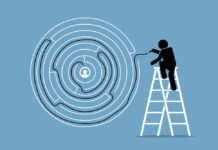Coming Out: Iatrogenic Illness Awareness Month
Our main reason for beginning an awareness month is the need for recognition-- a yearning to make the word “iatrogenic” and its corresponding language available to our community, and to the greater public as a household name. We don’t have the luxury of raising money for research, racing for the cure, or ribbons. For that we would have to be on the map. Why is it that something this pervasive gets so little traction?
Benzodiazepines: Dangerous Drugs
When the benzodiazepines were first introduced, it was widely claimed, both by psychiatrists and by pharma, that they were non-addictive. This claim was subsequently abandoned in the face of overwhelming evidence to the contrary, and the addictive potential of these products is now recognized and generally accepted.
A Tale of Two Studies
With increasing evidence that psychiatric drugs do more harm than good over the long term, the field of psychiatry often seems focused on sifting through the mounds of research data it has collected, eager to at last sit up and cry, here’s a shiny speck of gold! Our drugs do work! One recently published study on withdrawal of antipsychotics tells of long-term benefits. A second tells of long-term harm. Which one is convincing?
Mental Health Survival Kit, Chapter 4: Withdrawing from Psychiatric Drugs (Part 5)
Withdraw from psychiatric drugs at your own speed—according to what you feel. Don’t reduce again before you feel stabilised on the previous dose.
More on Benzos and Cognitive Damage
There is mounting evidence that benzodiazepines are causing Alzheimer's Disease. I cannot imagine any genuine medical specialty ignoring or downplaying information of this sort. But psychiatry, with the perennial defensiveness of those with something to hide, promotes the idea that they are safe when used for short periods, knowing full well that a huge percentage of users become "hooked" after a week or two, and stay on the drugs indefinitely.
Current Anti-Stigma Campaigns Hinder Withdrawal from Psychotropic Medication
Anti-stigma campaigns reinforce a belief that people with mental health issues must have treatment and thus, push discussion of withdrawal and negative aspects of psychiatric drugs into anonymous spaces.
Stopping the Madness: Coming Off Psychiatric Medications
Millions of patients find themselves caught in the web of psychiatric sorcery - a spell cast, hexed, potentially for life. They are told that they have chemical imbalances. They are told that the most important thing they can do for themselves is to "take their medication," and that they will have to do so "for life." Most egregiously, patients are sold the belief that medication is treating their disease rather than inducing a drug effect no different than alcohol or cocaine. That antidepressants and antipsychotics, for example, have effects like sedation or blunting of affect, is not a question. That these effects are reversible after long-term exposure is.
Cold Turkey
The other day I talked to a friend who I hadn’t seen for quite a while. She told me that she had been prescribed Seroquel for sleep problems about a year ago. But when she started to read about it a couple months ago she got really nervous that it was causing her long term health complications and she stopped taking it - cold turkey - without tapering. I wondered about our conversation afterwards and thought about the countless amount of people who don’t tolerate their psychiatric meds and quit cold turkey.
It Gets Better: Neuropsych Doctor Confirms Psych Drug Iatrogenesis, PTSD, Brain Injury
To those who are still suffering, it gets better. Indeed, I do not consider myself ill anymore. I consider myself HEALING, which is a vibrant state of movement and change. My limitations do not mean that I am sick. Learning to make boundaries for my well-being has been one of the healthiest things I’ve learned to do. Deeply respecting the needs of this body/temple is one of the most wonderful achievements of WELLNESS.
A Massachusetts Benzo Bill That Mandates Informed Consent
H. 3594 would require pharmacists to distribute pamphlets containing information on benzodiazepine misuse and abuse, risk of dependency and addiction, handling and addiction treatment resources. This would be a major legislative response to the prescribing patterns for these drugs today.
Mental Health Survival Kit, Chapter 4: Withdrawing from Psychiatric Drugs (Part 1)
Very few doctors know anything about withdrawal and make horrible mistakes. If they taper at all, they do it far too quickly because the few guidelines that exist recommend far too quick tapering.
Learning About Psychiatric Drug Withdrawal
We held the first course ever on psychiatric drug withdrawal on 12 June 2017 in Copenhagen. The course was open to patients, relatives, psychologists, doctors and other social and healthcare workers, and 77 people participated.
David Cohen on Madness Radio: The Meaning of Medications
David Cohen's work begins to address a paradox: medication effects are not simply chemical impacts on a biological brain, but rather the complex interactions of social factors, expectation, placebo, "nocebo," and learning. As a harm reduction approach to withdrawal emphasizes, empowerment may be the most important consideration for supporting people's wellness.
Envisioning Psychiatric Drug Freedom
Psychiatric meds can shut down the emotions and consciousness enough to make it possible to tolerate dynamics that would inspire rage or surges of empowered activity without the meds. It can be helpful to look closely at these blocks and start to create a map to freedom, understanding that it is a complex process that involves not only the physiology of the body of the individual taking meds, but the architecture of the social system around that person.
The Bitterest Pills: The Troubling Story of Antipsychotic Drugs
As I see it this website is about filling the gaping hole in the official literature on mental health problems and their treatment. Since these problems were declared to be diseases, ‘just like any other’, academic papers present them as if they were simply technical glitches in the way the brain or mind works. They can be identified by ticking a few boxes, and easily treated by tweaking the corresponding defect with a drug or a few sessions of quick-fix therapy. What it is like to experience these problems and their treatments is nowhere to be found. Yet in post after post on this site among others, we hear about the harm produced by drugs that are prescribed for mental health problems.
How Long Does Antidepressant Withdrawal Last?
The patient experiencing the pain of withdrawal believed that they would feel better when they stopped taking their antidepressants. After all, they’re under the care of a board-certified medical professional who has vowed to do no harm. But despite those reassurances, they find themselves in a world of hurt.
Do Antidepressants Worsen the Long-term Course of Depression? Giovanni Fava Pushes the Debate Forward.
In 1994, Italy's Giovanna Fava, editor-in-chief of the journal Psychotherapy and Psychosomatics, wrote for the first time of his concern that "long-term use of...
Our Powerful Mind, and Hope
One of the main arguments for continuing drug treatment for depression, psychosis and bipolar disorder is that you will get worse from stopping the drugs, especially if they are stopped abruptly. These are findings from mainstream psychiatry. However, if we combine this information with the methodology of the randomized controlled trial, we may see that these drug trials do not show efficacy of drugs, and may not be usable to show safety. The positive side to this is that the trials may actually demonstrate the healing power of our own minds.
Gradual Reduction is Best For Coming Off Meds: But In All Situations?
The phrase "medication tapering" is being used more and more as the preferred term for the psychiatric medication withdrawal or coming off process. Based on my years of work educating many people around coming off medications -- clients, support groups, and in workshops and trainings -- I think that term is misleading, and let me explain why.
What You Need to Know Before Starting a Drug for a Mental Health Problem
In a belated new-year blog, I thought it would be useful to set out what I think someone needs to think about if they are considering taking a drug for a mental health problem, especially if they think they might end up taking the drug for a long time. These are the questions you might want to ask your doctor if you take a ‘drug-centred’ approach to the use of drugs in mental health.
Helping People Come Off Medication—Bad for Business?
The message in journal editorials, comments and opinion articles, is that 'this new study shows great promise' and that 'we need further research'. My interpretation is: 'give us the money and we will be happy to carry this out'. With the implied promise that, once this new research has been done, we will get a better world. Sadly this is rarely ever the case.
Antidepressants, Pregnancy, and Autism: Really Time to Worry
On Monday April 14th, an important new study from Harrington et al was published in the journal Pediatrics (the official journal of the American Academy of Pediatrics.) The study was designed to examine prenatal use of selective serotonin reuptake inhibitors (SSRIs) and the risk of autism spectrum disorders (ASDs) and other developmental delays (DDs). Nine hundred sixty-six mother child pairs were studied and the researchers found that in boys, the association between maternal SSRI use in the first trimester and autism was very strong (OR 3.22). The association between third-trimester maternal SSRI use and developmental delay was even stronger, with an odds ratio of 4.98.
The Review on Antidepressant Withdrawal That Cochrane Won’t Publish
Peter Gøtzsche and Anders Sørensen on trying to get a review of methods for safe antidepressant withdrawal published in Cochrane: "They sent us on a mission that was impossible to accomplish" to "protect the psychiatric guild."
Components for a Good Neuroleptic Withdrawal Program
The United States desperately needs good programs to help people withdraw from neuroleptic drugs. From all I have seen and heard, there aren’t any - none at least that can reputably claim to get good results on a fairly consistent basis. Again and again I find myself challenged to envision such a program, and in reply to the challenge I have broken down this hypothetical program into various components.
Tardive Dyskinesia in the Atypicals Era: Is The Risk Any Less Today Than Before?
A few weeks ago, while I was at a birthday celebration, a friend who works in a mental health setting remarked that she was...























